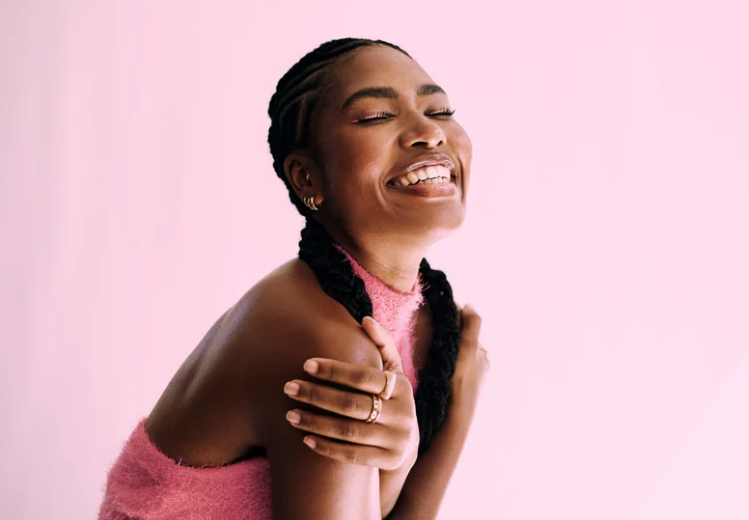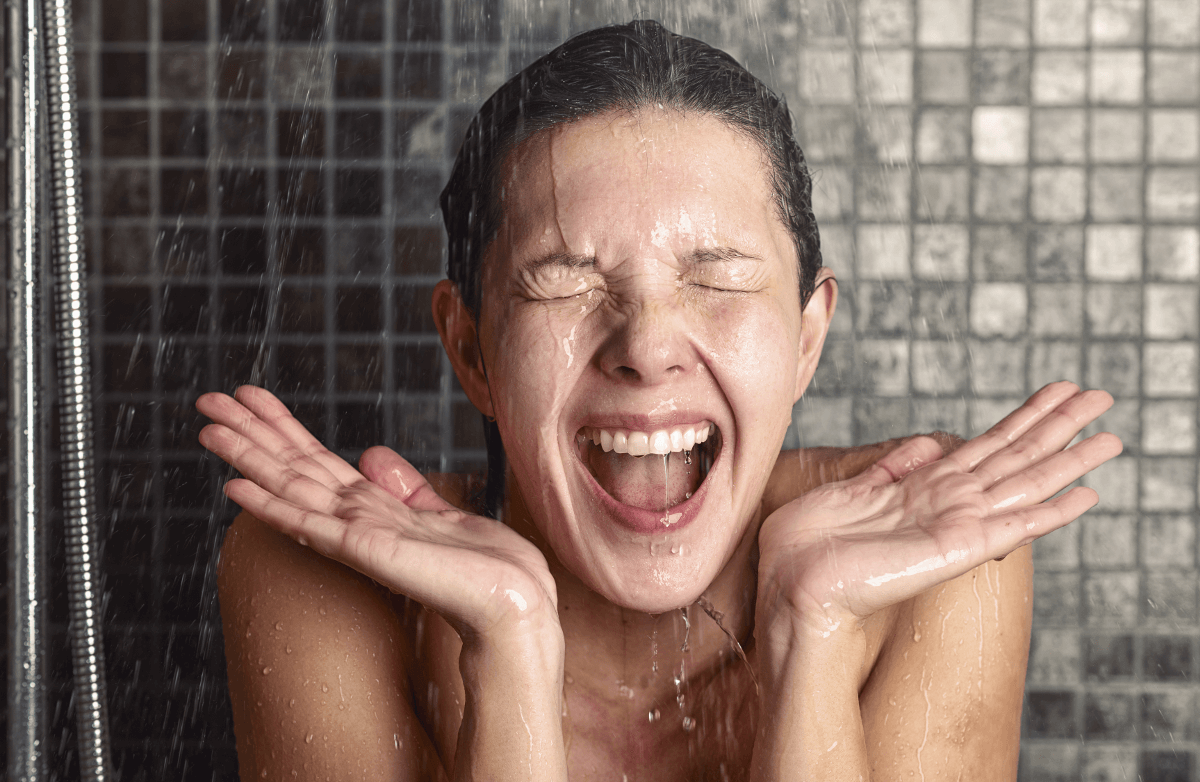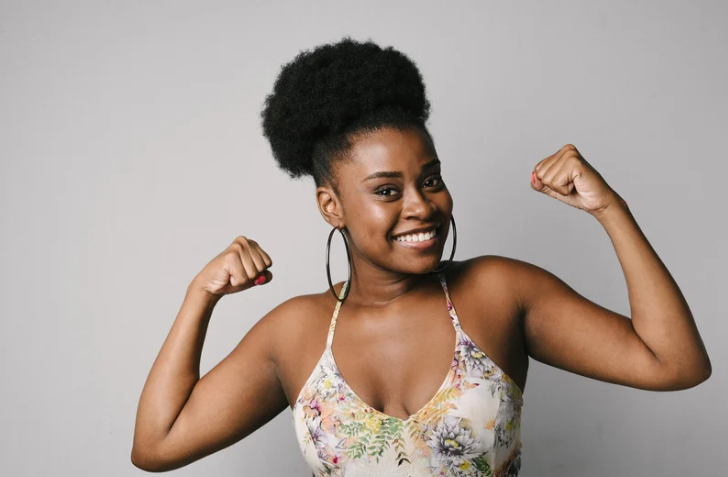Have you noticed that every magazine you pick up lately has advertisements for the many ways we can look younger than our chronological years? There are ads for injections and creams to remove our wrinkles, surgery to zap away our fat, and hair dyes to cover every bit of gray. It’s as if aging is something to be ashamed of; something we should hide—and fight—every step of the way.
But aging is inevitable! The alternative isn’t one I would like to choose. We should be proud of the years we accumulate. They are accompanied by wisdom, experience, and greater insight. Growing old, I'm on board with. But looking old? I'm not so hot on that idea yet.
Although anti-aging cosmetics and procedures may have a place in your overall routine, there are plenty of natural ways to slow the aging process. We shouldn’t forget that the true key to looking younger is feeling younger. There is nothing that ages an individual more quickly than illness, pain and stiffness, or chronic stress. Therefore, much of what we do to take care of ourselves on a daily basis will also help us keep a youthful appearance.
Here is a rundown of the many things you can do that won’t cost (or hurt) too much, but will make you feel vibrant and strong. Let’s be proactive in our approach to aging and grow into our later years gracefully and beautifully!
Adjust Your Mindset: YOU Control How You Will Age
Research has found that the most serious aging occurs at the cellular level. Many of our lifestyle habits such as exercise, nutrition, stress management and sleep will enhance the body’s ability to repair the cellular damage that is inevitable as we get older.
Traditional medicine focuses on treating illness to prolong life. But many healthcare professionals want to shift that focus to preventing disease in the first place. We want to not only add years to our life, but life to our years.
Disease occurs when we fail to keep our bodies and minds active; it is not an unavoidable result of getting older. Arthritis, osteoporosis, high blood pressure, high cholesterol, heart disease and even dementia often occur because of the accumulation of unhealthy lifestyle habits rather than as a result of years ticking by.
Much of what you decide to do on a daily basis will not only prolong the length of your life, but the quality of those years as well.
Exercise: The Fountain of Youth
When I visit my parents who live in a senior community in Florida, I can always tell who among their neighbors are lifelong exercisers: They stand taller, walk effortlessly, and easily look 10 years younger than their non-exercising contemporaries. They exhibit a youthful demeanor that comes with feeling and looking well. Not to mention that a good workout gives us naturally-flushed cheeks and sense of well-being--just a few more bonus reasons to include regular exercise in our arsenal of natural age-defyers! There are three types of exercise that can keep you looking and feeling young.
- Aerobic exercise increases circulation throughout the body and strengthens the heart and lungs. It aids in digestion, helps us reduce anxiety and stress, and enhances the quality of our sleep. Weight-bearing aerobic exercise, such as walking, jogging, hiking or dancing, can even slow bone loss.
- Strength training has been shown to build bone mass, which helps to prevent and slow down osteoporosis. Building muscle mass keeps us strong and revs the metabolism, which helps to maintain a healthy body weight and youthful figure. Strength training keeps us limber and improves balance, preventing debilitating falls and fractures. Ultimately, it keeps you independent and capable of more things even as you get older.
- Lifestyle activities, such as golf, gardening, bowling, tennis and ballroom dancing involve both physical and mental stimulation, keeping both our bodies and minds young. In general, experts agree that the more you can move--even if it's not as intense as traditional forms of exercise--the better off your body and your mind will be as you age.
You Are What You Eat, So Feed Your Face
Much has been written about the power of nutrition to ward off illness, boost the immune system and enhance your complexion.Real food is more beneficial to your body and skin than supplements are, and eating a wide variety of super foods increases your chances of absorbing the most nutrients possible.
If maintaining healthy skin is your concern, foods containing vitamins A, C, and E, and polyphenols (antioxidants that have anti-inflammatory properties that protect and benefit the skin) should be part of your daily diet. Here are some examples of deliciously colorful foods that provide these key nutrients:
- Vitamin A: Sweet potatoes, broccoli, leafy greens (such as spinach and kale), red, yellow and orange produce (such as cantaloupe, carrots, bell peppers), and asparagus
- Vitamin C: Red bell peppers, broccoli, cauliflower, strawberries, pineapple, kiwifruit, oranges, and cantaloupe
- Vitamin E: Nuts and seeds, vegetable oils, tomato products, and spinach.
- Polyphenols: Green tea, cocoa and dark chocolate.
Get Your Beauty Sleep
Experience a night of insomnia or stay up into the wee hours for any reason, and you’ll probably notice signs of sleep deprivation in the mirror the next day. Bags under the eyes and pallor to your skin can definitely make you look old and tired. Repeat this night after night, and the chronic sleep deprivation will age your body from the inside out.
Most of us don’t get enough sleep, and that plays a significant role in our appearances. Individuals who get less than 6 hours of sleep a night may be at an increased risk for viral infections, heart disease, obesity and stroke, with an associated decline in mental functioning to boot.
If your lack of sleep is due to your desire to get more done each day, think about the time you waste due to fatigue interfering with your efficiency. Adjust your attitude and your habits, and begin working to get 7-8 hours of sleep a night.
If your lack of sleep is due to insomnia, a snoring partner or other nighttime disturbances, some simple lifestyle adjustments might help. Reduce afternoon caffeine, kick the dog out of your bed, or keep a pad by your bedside to write down things you need to remember in the morning. If that doesn’t work, talk with your physician to rule out sleep apnea or other medical conditions that may be preventing you from getting the rest you need.
Calm the Years Away: Deep Breathing, Meditation, and Yoga
Chronic unmanageable stress wreaks havoc on our bodies and makes us feel old before our time. It’s been linked to high blood pressure, heart disease, obesity, and skin inflammation. Stress has also been shown to suppress our immune system, making us more prone to illness and disease.Anything you do to manage and alleviate stress will have a positive impact on how you look and feel as you age. Setting aside a few minutes each day to be quiet, center yourself, and let your worries drift away is smart medicine. Make deep breathing exercises or meditation a part of your routine. Yoga has the added benefit of not only calming the mind, but also keeping the body flexible and strong.
Take Care of Your Smile
Most people don't take the time to connect the two, but the health of your mouth can also affect the health of your body. Individuals with gum disease are more prone to heart disease and lung problems. For people with diabetes, treatment of gum problems can also help control blood sugar levels. And nothing can make you look older than yellow, stained or missing teeth. Make twice-a-day brushing and flossing a regular part of your daily routine. There are excellent whitening toothpastes and strips available over the counter, too. Schedule a professional cleaning with your dentist at least twice a year. And if you are already experiencing cavities, bleeding gums, or loose teeth, consider implants. A periodontist (a dentist who specializes in the treatment of gum disease), can restore you with a younger smile, fresher breath, and overall health.
Protect Your Skin (and Eyes) from the Sun
Nothing ages the skin faster than sun overexposure. Collagen, the structural protein of our skin, breaks down in response to UV radiation. The sun also increases the production of free radicals, which damage cells and break down collagen as well. Although sunscreen offers some protection, many people apply too little of it—and not nearly frequently enough.Aside from being a fashion accessory, sunglasses will protect the health of your eyes and will help prevent the wrinkles that accompany squinting at the sun. Purchase sunglasses that provide 99-100% UV protection for both UVA & UVB rays. And protect your skin from exposure by wearing a wide-brimmed hat, longer sleeves and other sun-shielding apparel.
Don't Neglect Your Ears
Our ears contain tiny hairs that vibrate in response to noise. This then excites the auditory nerve, allowing us to hear and interpret sounds. However, too much vibration due to excess exposure to very loud noises frays those hairs, and could lead to hearing loss over time.By all means, enjoy listening to music--but turn down the volume. You should still be able to hear outside noises above the music in your ears. Wireless headphones have saved my marriage, since my husband loves to stay up way later than I do watching movies. But if I try to talk to him and he can’t hear me, I know they are too loud.
If you work in an environment that exposes you to constant loud noise, or you love a good rock concert, consider using earplugs or sound-reducing headphones to muffle the sound. Nothing will make you feel old faster than not hearing the conversation around you!
Stop Smoking and Limit Alcohol
Smoking can accelerate the aging process and shorten your lifespan (and quality of life) considerably. Decreased lung capacity, emphysema, and heart disease are all associated with smoking, not to mention the detrimental effect it has on your looks. Smoking correlates to wrinkles around the lips, yellowing of the teeth, and aging skin. If you want to look younger, feel younger and live longer, give up smoking!Alcohol is another vice you should consider giving up to look and feel more youthful. One alcoholic drink a day for women and up to two daily for men (4 ounces of wine, 12 ounces of beer or 1.5 ounces of spirits) may have beneficial effects on the heart, but the National Institute on Alcohol Abuse and Alcoholism reminds us that chronic alcohol consumption can result in premature and exaggerated aging. Over time, excessive alcohol consumption negatively impacts almost every physiological system in the human body. So if you enjoy the occasional drink, go ahead and partake. But if you overindulge too often, cut back.
Your Brain: Use It or Lose It
When we meet an elderly individual with mental acuity, we are inspired. We say things like, ''Can you believe she’s 90? She seems so much younger! Still sharp as a tack.''
Although dementia does have a genetic component, lifestyle has a tremendous impact on whether history will repeat itself. Many habits, such as exercise and healthy eating, can keep our brain cells functioning well into our elderly years. Some research even shows that seniors who keep their brains stimulated enjoy the same quality of life as younger people.
To keep your mind sharp, play games such as Scrabble, chess, and Sudoku, or do crossword puzzles. Read, go to lectures, concerts and the theatre. Learn to play a musical instrument, or study a foreign language. Anything that continually stimulates your mind and keeps you learning new things is helpful to your brain.
Most importantly, maintain friendships and social connections. An Australian longitudinal study found that older adults with the strongest network of friends were 22% less likely to die during the study than those with weaker social networks.
Don't call a plastic surgeon to delay getting older! Grab a friend, go for a walk, or play a game of Scrabble. Do what you can to slow the aging process naturally, and enjoy all of your years to their fullest!








